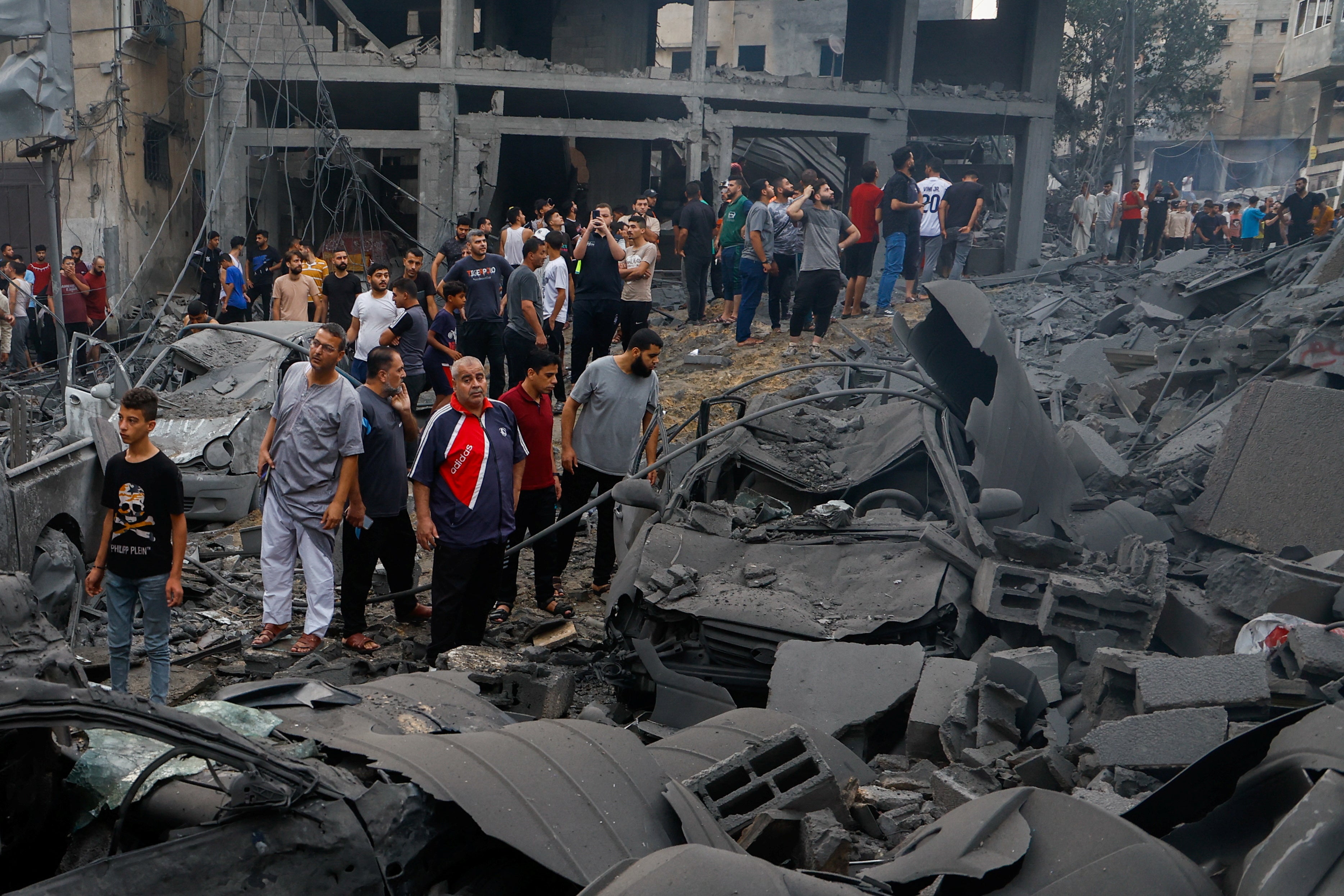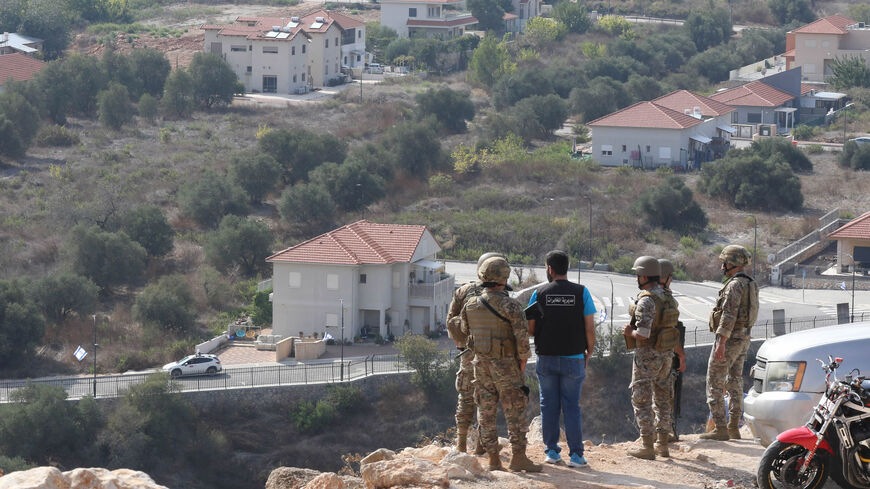Israel Declares Firm Grip Beyond Gaza's Borders

In a swift and determined response, Israel's military has declared victory in the towns bordering the Gaza Strip just two days after a devastating Hamas attack claimed the lives of hundreds of Israelis.
Israel Defense Forces spokesperson, Daniel Hagari, announced that the fierce fighting in these neighbouring communities had come to an end, with Israeli forces regaining control. However, he cautioned that Gaza militants may still be lurking in the vicinity.
Hagari emphasized that the top priority now is to secure the "gaps in the Gaza border fence." He issued a stern warning, stating, "The threat of terrorists in the area persists." To ensure the safety of its citizens, Israel will deploy helicopters, tanks, and drones along the fence to prevent any potential infiltration by terrorists.
In a dramatic turn of events, IDF spokesperson Richard Hecht revealed today that Israeli forces are still locked in intense battles with terrorists in seven to eight locations along the country's southern border with Gaza. Hecht minced no words, labelling Israel's unpreparedness for the Hamas attack a "failure." Shockingly, he disclosed an ongoing hostage situation gripping Kfar Aza, a tranquil kibbutz in the nation's southern reaches.
As tensions escalated, Israel responded with decisive force, unleashing a relentless bombardment on over 1,000 targets in Gaza overnight. To fortify its southern defences, the Israeli military swiftly deployed four formidable divisions. Simultaneously, they took proactive measures to secure their northern border with Lebanon. This heightened state of alert comes in the wake of a brazen mortar attack by the militant group Hezbollah on an Israeli military base in the occupied Golan Heights just days ago. The region remains on edge as the Israeli defence forces work tirelessly to restore stability.

In a tragic turn of events, over 700 Israeli civilians and soldiers have lost their lives since Hamas breached Israel's high-tech border fence, infiltrating the nation through a daring incursion involving foot soldiers, vehicles, and even paragliders. This audacious act occurred in the early hours of a Saturday, catching some Israeli soldiers off guard as they had gone home to celebrate the Jewish Simchat Torah holiday.
In a grim statistic, this conflict marks the deadliest incursion inside Israel since its inception in 1948, with at least 100 people reportedly abducted in the chaos that ensued. Israel's response was swift and unforgiving, cutting off electricity into Gaza and launching devastating air attacks on the blockaded Palestinian enclave. These strikes resulted in the destruction of several high-rise buildings, exacerbating an already dire situation.
Tragically, Gaza has borne the brunt of the violence, with Gaza health officials reporting a staggering toll of 493 lives lost and 2,751 people injured. As the conflict rages on, the United Nations paints a grim picture, revealing that over 123,000 individuals have been displaced in Gaza, their homes reduced to rubble by Israeli airstrikes. Among the displaced, more than 73,000 are seeking refuge in 64 schools, according to the UN agency for Palestinian refugees.
This harrowing conflict continues to unfold, with the world watching in anticipation of a resolution to this deeply distressing and complex situation.
In the volatile landscape of Israel's ongoing conflicts with Hamas, tensions reached a boiling point in 2021, triggering an 11-day clash between Israel and the militant group. This explosive showdown not only had immediate consequences but also ignited communal violence between Jewish and Palestinian communities within Israel itself. The flames of unrest didn't stop there; they spread to the West Bank, where passionate protesters clashed with Israeli security forces.
The repercussions of this tumultuous situation were felt far beyond the borders of the conflict zone. Oil prices surged by nearly 3 per cent in a single day, edging perilously close to the $87 per barrel mark. The cause of this sudden spike? Widespread concerns that the fallout from this escalating conflict could potentially spill over and engulf the entire region.
Stephen Innes, the astute managing partner at SPI Asset Management, summed up the sentiment succinctly: "Obviously, everyone's reaction was to scramble for oil, driven by the heightened political risk." But the ripple effect extended further, as anxiety brewed over the prospect of Iran's potential involvement in orchestrating the Hamas attack. This ominous possibility raised the spectre of even stronger U.S. sanctions on Iranian oil exports, adding another layer of complexity to an already explosive situation.

Amid escalating conflict, major airlines like Cathay Pacific, easyJet, and Lufthansa have grounded their flights to Israel. On Monday, Tel Aviv's Ben Gurion International Airport saw a staggering 23% of its flights cancelled, as reported by FlightRadar 24. The turmoil in the region has sent shockwaves through the aviation industry, leaving travellers stranded and uncertainty soaring.
In response to inquiries about potential Iranian support for Hamas' recent lightning attack, Israeli spokesperson Hecht acknowledged the likelihood of Iranian involvement but emphasized that their current focus is squarely on countering Hamas. He emphasized the importance of securing their northern border.
Meanwhile, the United States has announced its commitment to bolstering Israel's efforts by deploying an aircraft carrier strike group and fighter jets to the eastern Mediterranean, along with supplying munitions.
On the economic front, the Bank of Israel has unveiled a plan to inject up to $30 billion into foreign exchange markets to stabilize the shekel's exchange rate and ensure the smooth functioning of financial markets.
What's Your Reaction?























